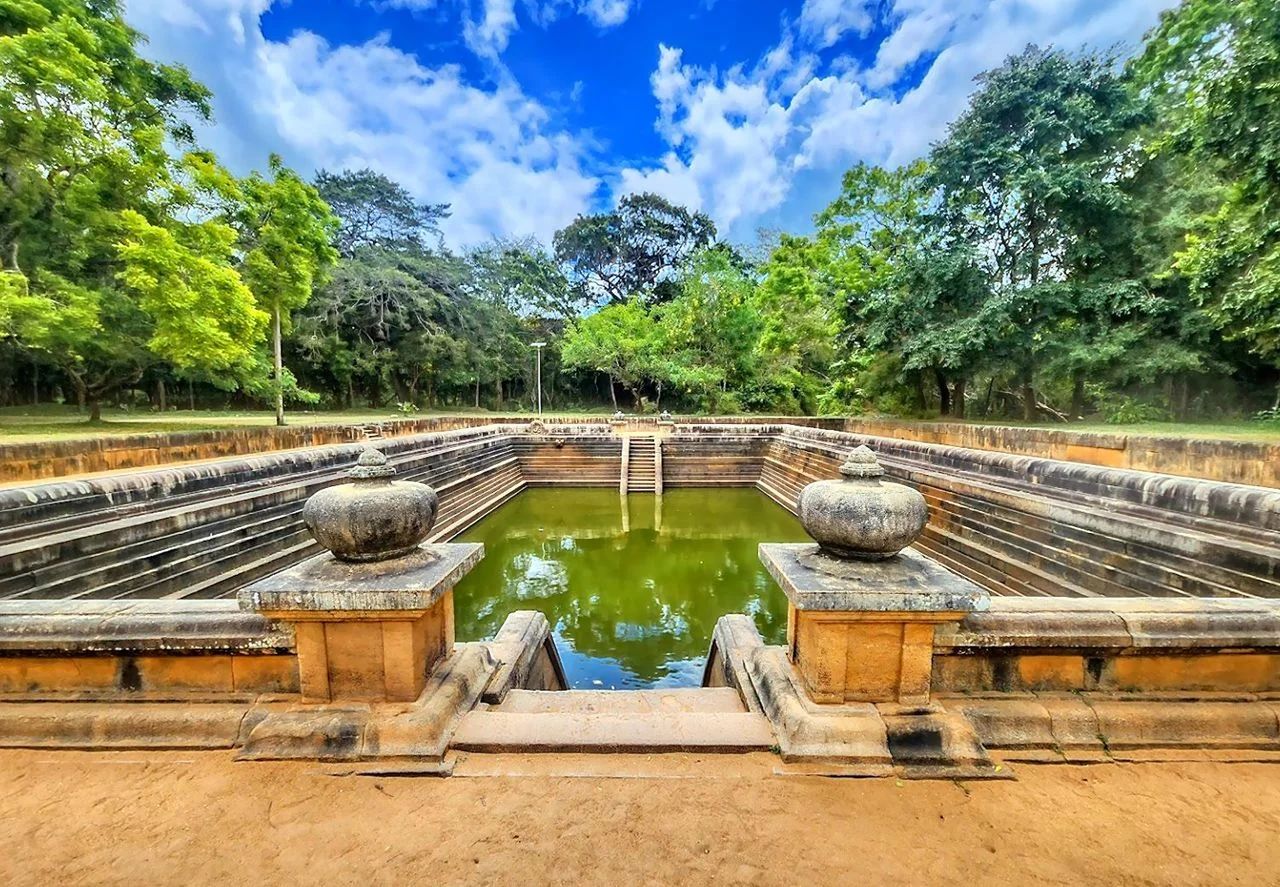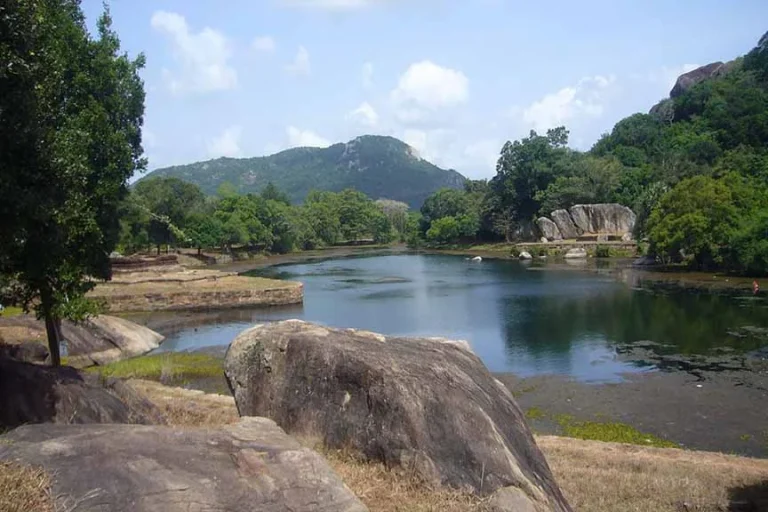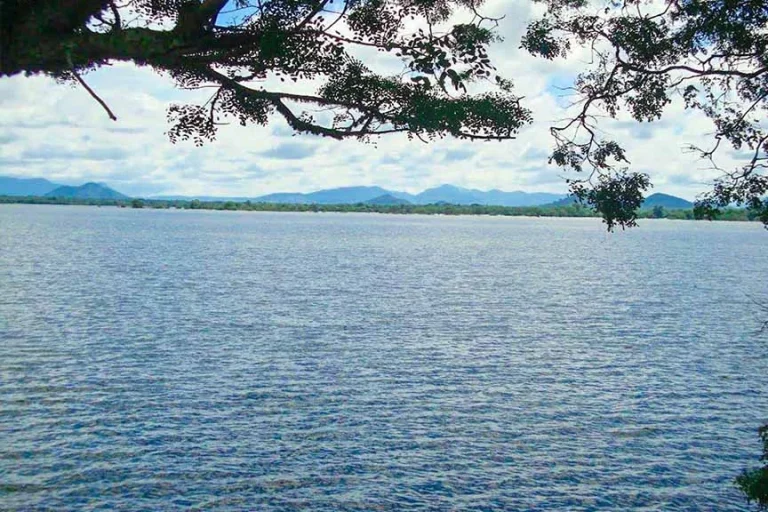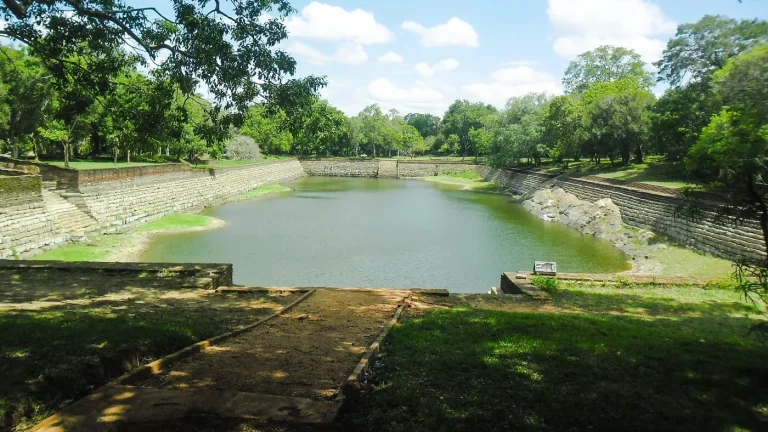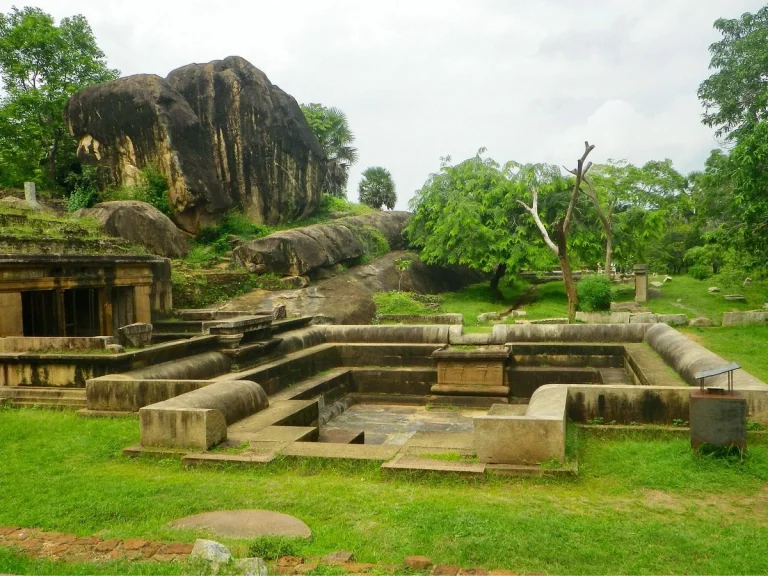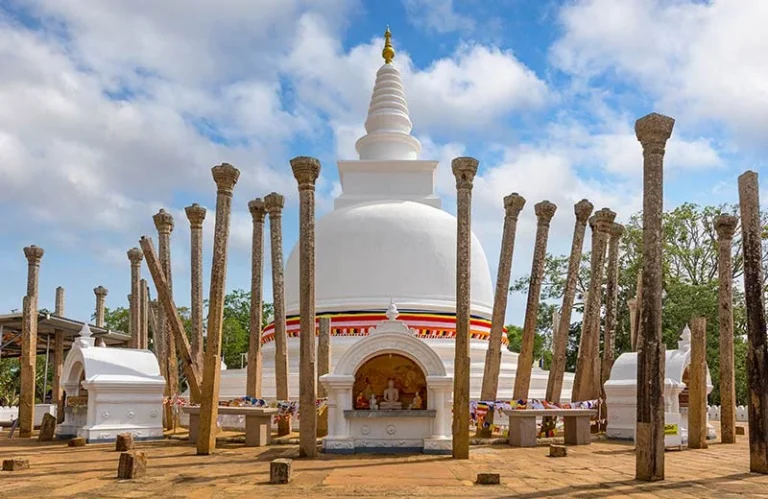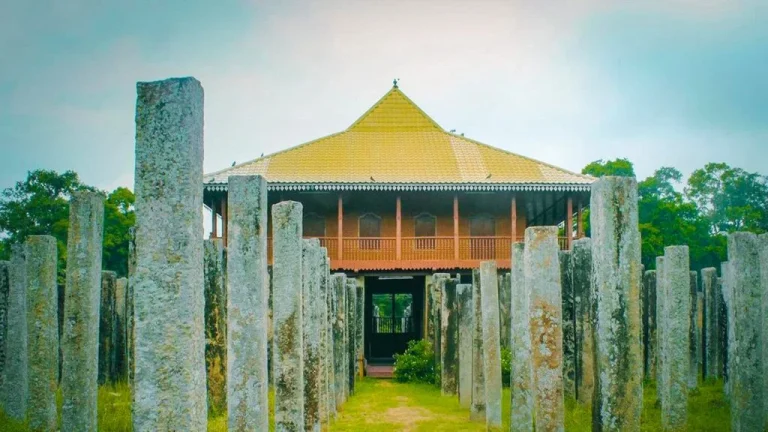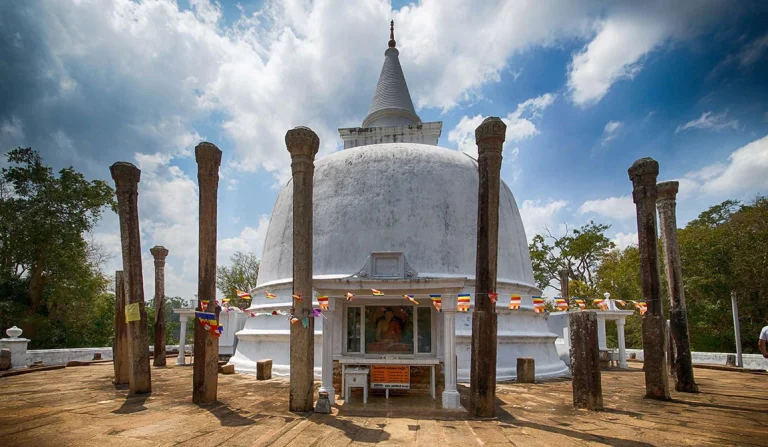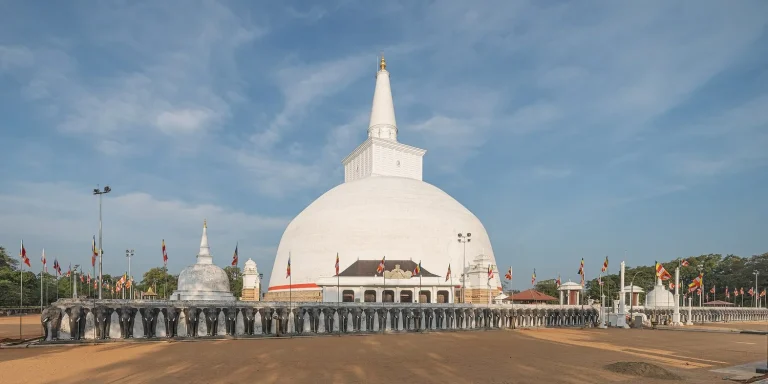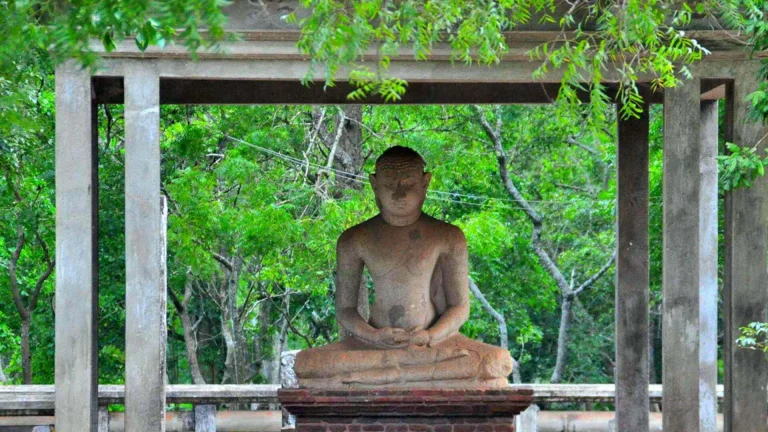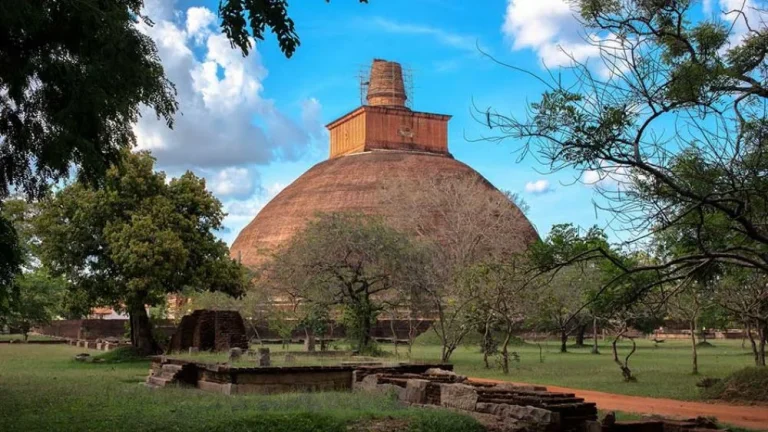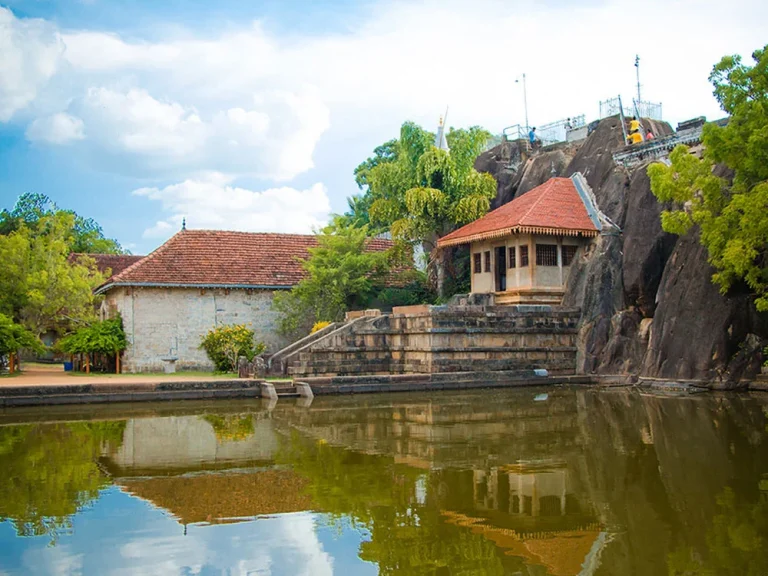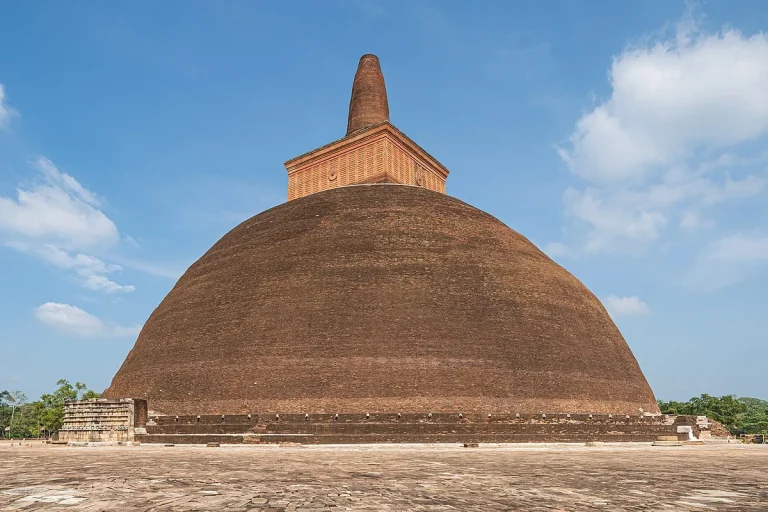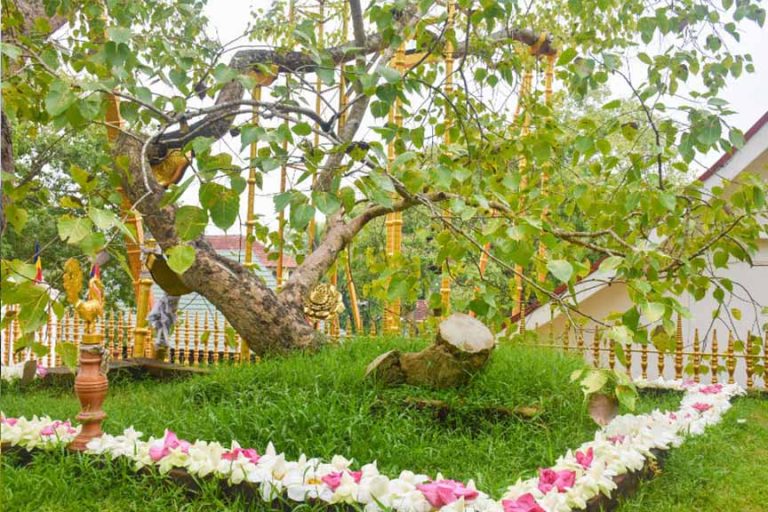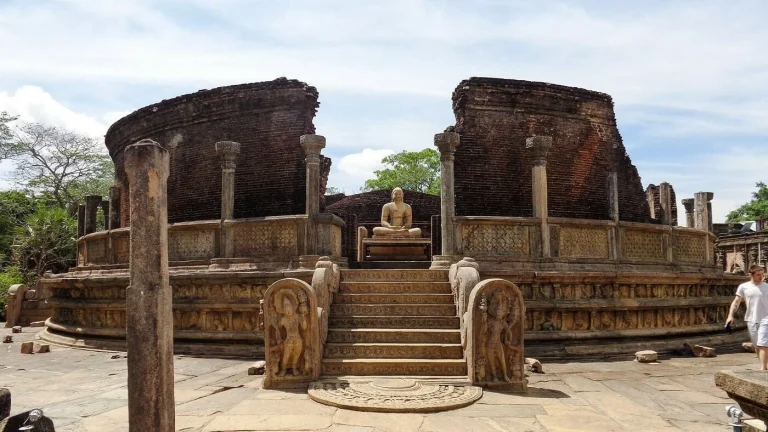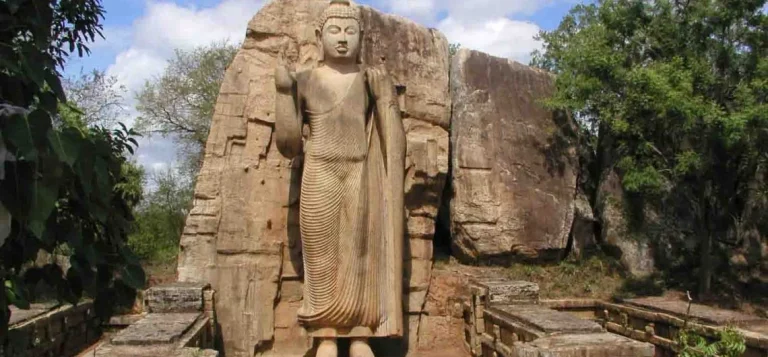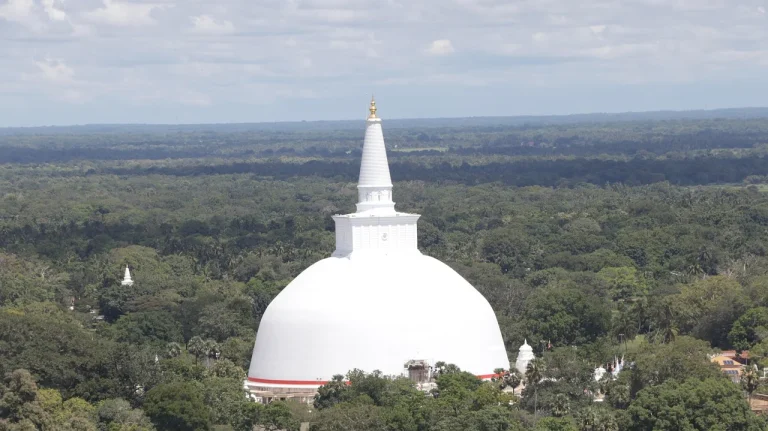All Provinces
Exploring Anuradhapura’s Kuttam Pokuna: The Enigmatic Twin Ponds of Sri Lanka
Introduction
Anuradhapura, one of Sri Lanka’s ancient capitals, is a treasure trove of historical sites, and among its most captivating attractions are the Kuttam Pokuna, or the Twin Ponds. These remarkable reservoirs date back to the 3rd century BCE and showcase the advanced engineering skills of the ancient Sri Lankans. Nestled within the sacred city, Kuttam Pokuna offers visitors a glimpse into the island’s rich heritage, combining natural beauty with architectural brilliance.
A Historical Overview
Kuttam Pokuna was built during the reign of King Agbaya, who ruled from 7 BCE to 5 BCE. The twin ponds served as bathing places for monks and were intricately designed to reflect the principles of symmetry and tranquility. The names “Kuttam Pokuna” translates to “the ponds of the pond,” a nod to their unique structure and significance in the ancient monastic lifestyle.
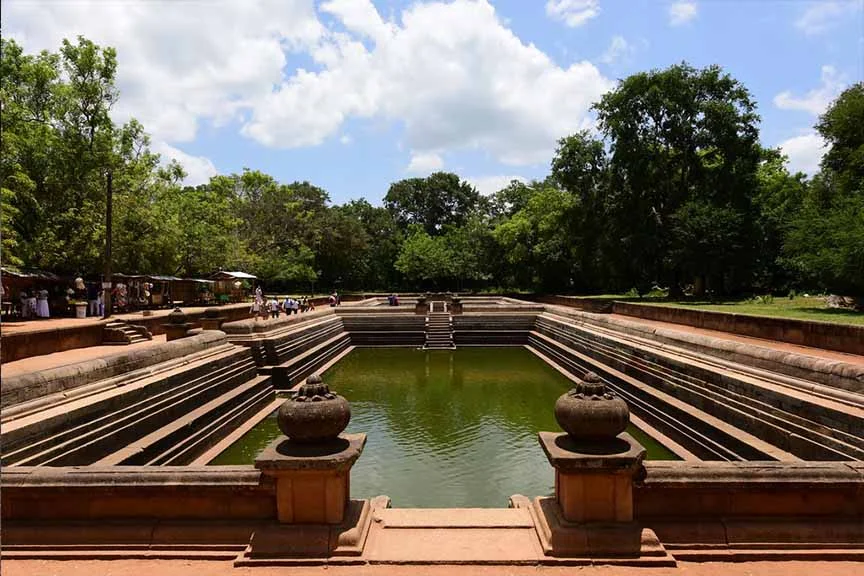
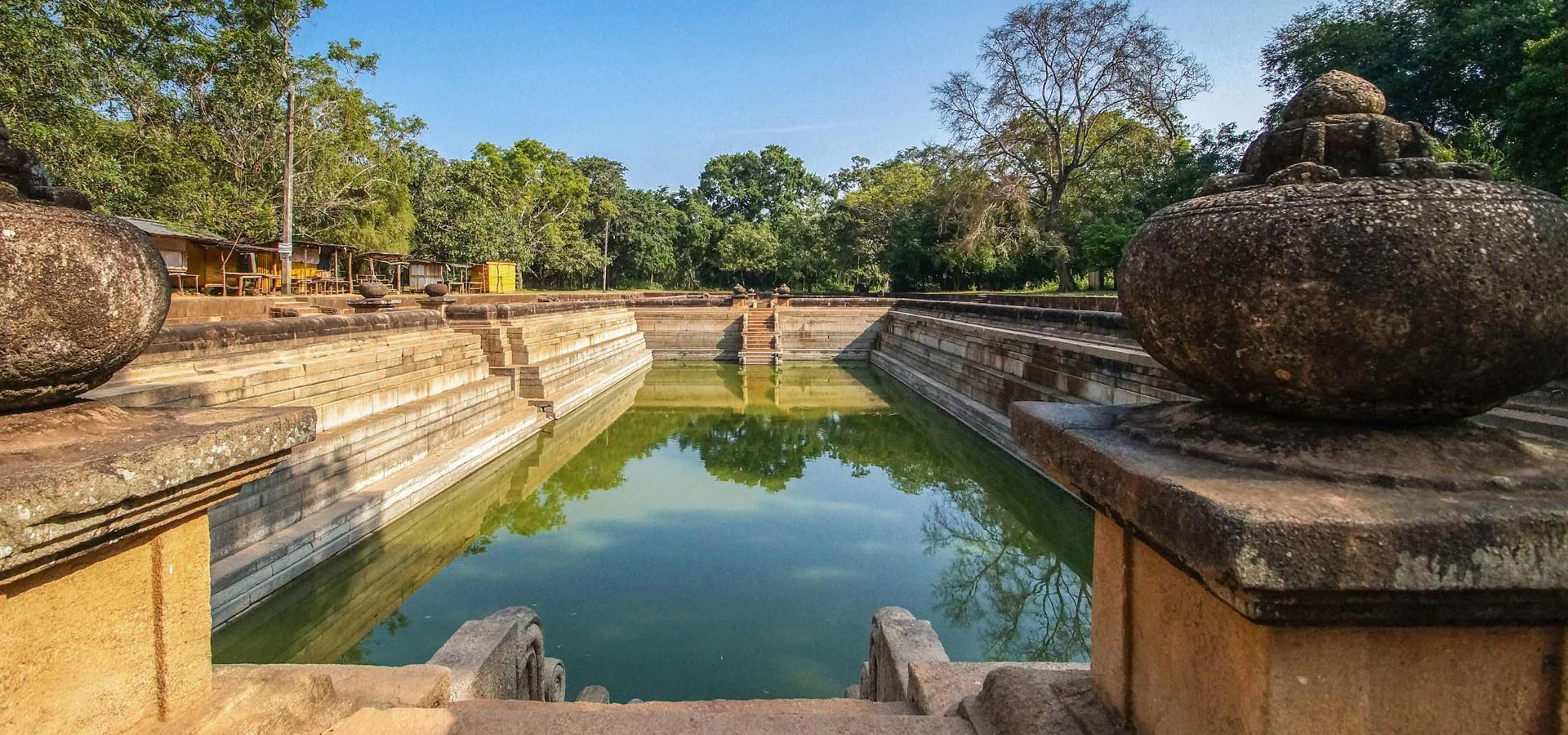
Architectural Marvels
The Twin Ponds are renowned for their stunning craftsmanship. Each pond features meticulously crafted stone steps leading down to the water, surrounded by finely carved stone walls adorned with lotus motifs. The deeper of the two ponds is believed to be approximately 12 meters, while the shallower one is about 8 meters deep. An innovative system of canals and drains allowed for the continuous flow of fresh water, showcasing the exceptional hydraulic engineering of the time.
Visitors can marvel at the intricate details, including the beautifully carved lotus petals and the smooth surfaces of the stone, which have withstood the test of time. The ponds are framed by lush greenery, providing a serene setting that invites reflection and contemplation.
Cultural Significance
Kuttam Pokuna holds a vital place in the spiritual and cultural landscape of Anuradhapura. As a part of the ancient monastic complex, the ponds were essential for the monks’ daily rituals and were considered sacred. They symbolize purity and enlightenment, embodying the essence of Buddhist philosophy.
Visitors often come to Kuttam Pokuna not just to admire its beauty but also to pay their respects to the ancient traditions that continue to resonate in Sri Lanka today. The site is a popular spot for meditation and relaxation, drawing those seeking peace and solitude.
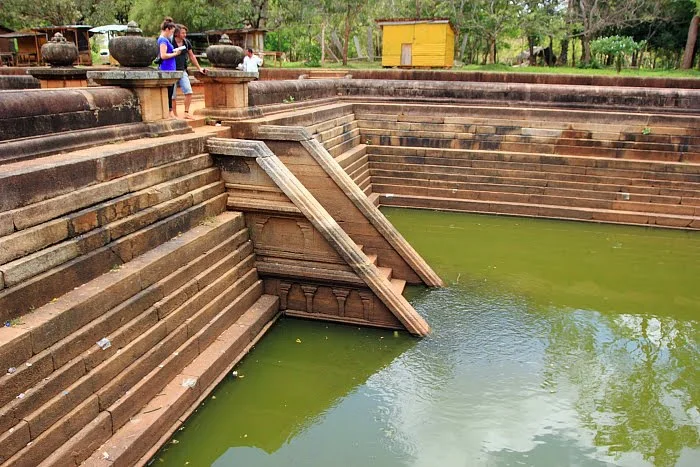
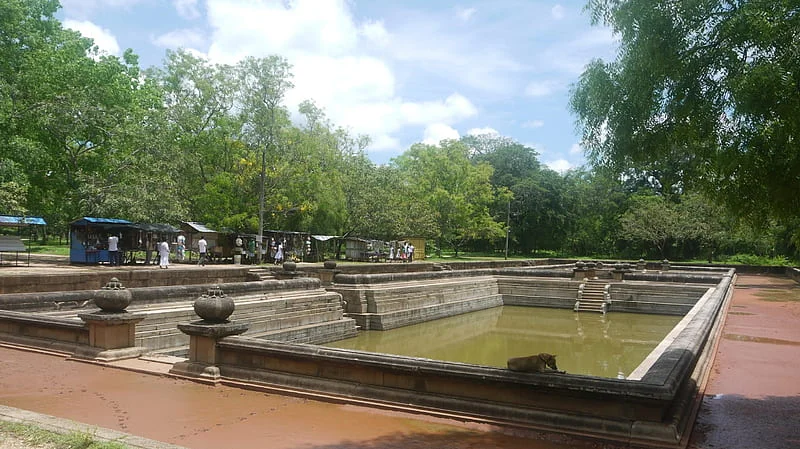
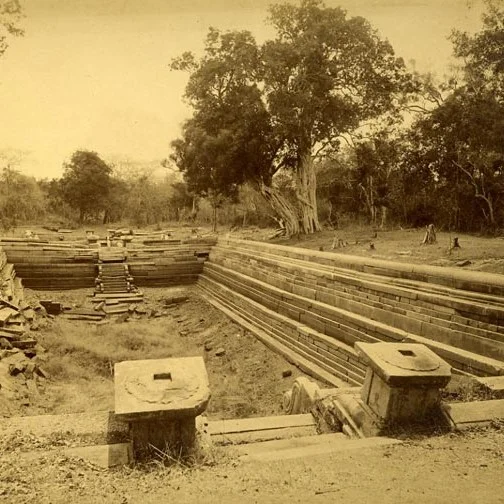
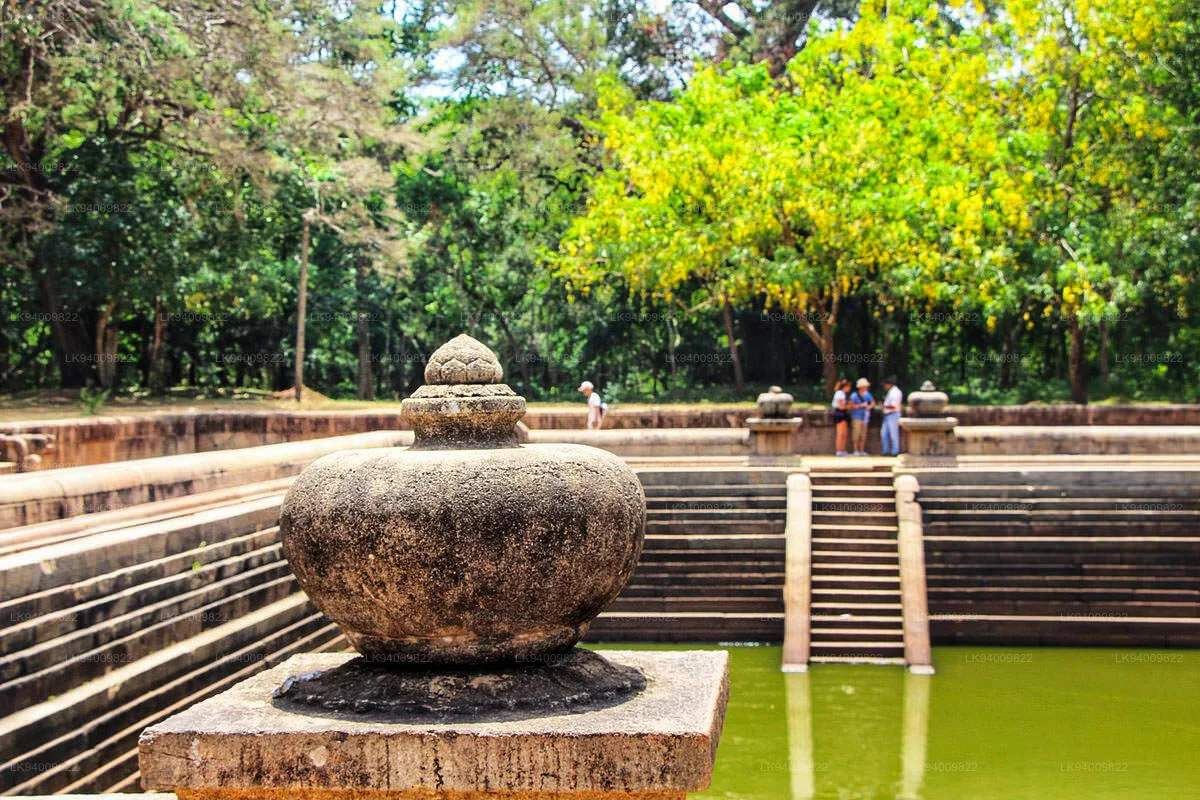
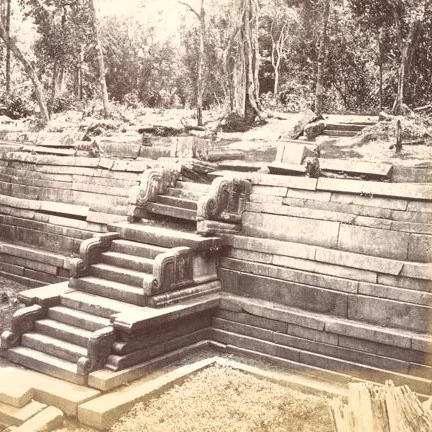
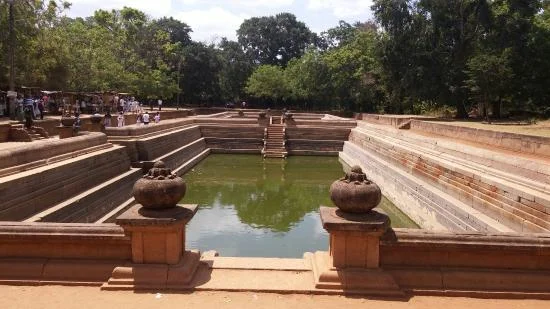
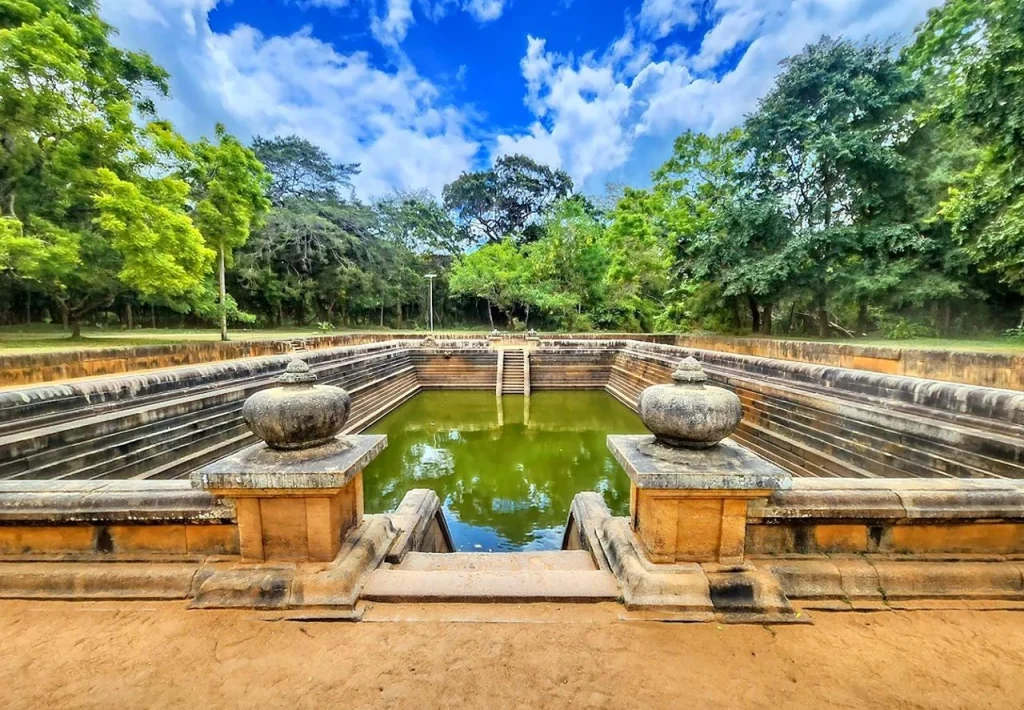
Visiting Kuttam Pokuna
Getting There
Kuttam Pokuna is easily accessible from the central area of Anuradhapura. It is located approximately 3 kilometers from the famous Sri Maha Bodhi tree, one of the most sacred Buddhist sites. Visitors can reach the site by foot, bicycle, or tuk-tuk, with numerous options available for transportation.
Best Time to Visit
The ideal time to explore Kuttam Pokuna is during the cooler months from December to March. Early mornings or late afternoons offer a comfortable climate for wandering through the ruins, capturing stunning photographs, and appreciating the tranquility of the ponds.
Tips for Visitors
- Respect the Heritage: As Kuttam Pokuna is a sacred site, visitors are encouraged to dress modestly and maintain a respectful demeanor.
- Photography: Capture the beauty of the ponds during sunrise or sunset for stunning photographic opportunities.
- Local Guides: Consider hiring a local guide to gain deeper insights into the history and significance of Kuttam Pokuna and the surrounding area.
Conclusion
Kuttam Pokuna, the Twin Ponds of Anuradhapura, is not only a testament to the engineering prowess of ancient Sri Lanka but also a serene sanctuary that invites visitors to reflect on the island’s rich cultural heritage. Whether you’re a history enthusiast, a nature lover, or a spiritual seeker, Kuttam Pokuna promises an unforgettable experience. Make sure to include this enchanting destination in your travel itinerary when exploring the wonders of Sri Lanka.
See More Tourist Places Click Here

